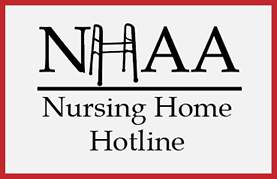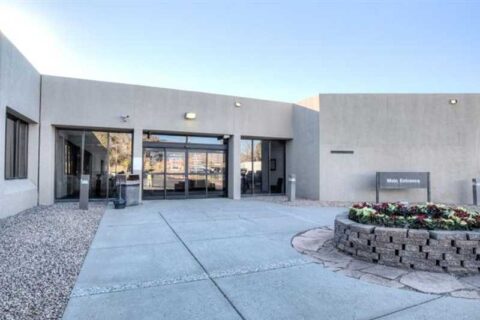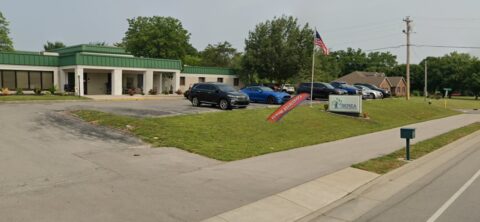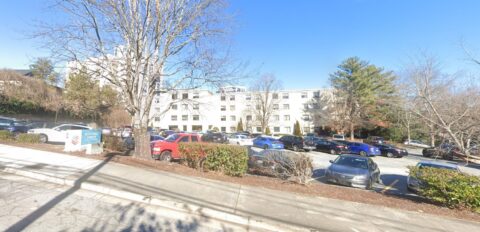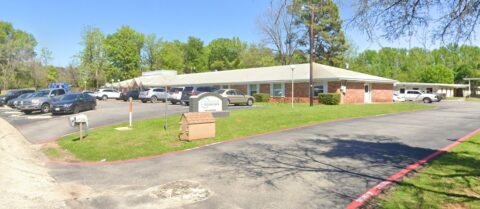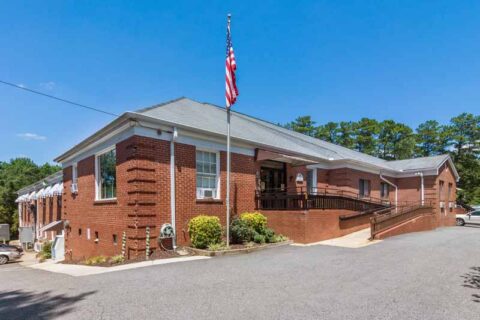In The News:
His 93-year-old mom died from heat after Beryl. Her death was preventable.

By Regina Lankenau, Assistant Op-Ed Editor July 13, 2024
When Jonathan Sturgis last said goodbye to his 93-year-old mother Barbara, he thought he was leaving her in good hands. On Tuesday, the day after Hurricane Beryl chewed through Houston and left millions without power, he checked on his mom at The Terraces, the Kingwood independent living complex where she lived. The power had been knocked out there, but Jonathan and his mom enjoyed lunch. He noted it was a little warmer than usual inside, but he knew they had a back-up generator. No reason to worry.
Jonathan told Click2Houston that he’d received only one email from The Terraces regarding the hurricane. (I wasn’t able to reach The Terraces for comment.) “Our generator continues to run select lighting and power in both dining rooms and the kitchen,” it read. “We have air conditioners and fans in place.”
But by Thursday morning, temperatures inside had climbed to intolerable levels. The Terraces began voluntarily evacuating residents.
For Jonathan’s mom, that came too late. Barbara had already died.
As far as I know, Barbara’s is the Houston area’s first heat-related death, post-Beryl, at senior housing. I’m worried it won’t be the last.
Many of these facilities are registered as high-priority places where electricity is crucial, the way hospitals are. But according to the Texas Health and Human Services Commission, five days after Beryl, approximately 35 nursing homes and 67 assisted living facilities in the greater Houston area are still without power.
And of those, at least a dozen nursing homes and 27 assisted living facilities have no way to power their air-conditioning, even while we remain under a heat advisory. Federal and state laws require nursing homes — which care for people who require around-the-clock assistance — to have a generator. But they’re not required to have enough power or fuel to maintain the indoor temperature at a livable level.
Other places that cater to seniors — assisted, independent and senior living communities — have no generator requirements at all. The Terraces was exceptional for even having a generator. But it doesn’t seem that the generator was powerful enough to keep residents safe from extreme heat.
Greg Shelley, senior manager of the Harris County Long-Term Care Ombudsman Program at UTHealth Houston’s Cizik School of Nursing, told me he’s received “an inordinate amount” of calls from struggling independent living facilities, which are outside his purview. He has little to offer them — not even a place to call for help.
It is maddening that so many Texas facilities are still woefully unprepared for a blackout. Even after Winter Storm Uri, when 1 in 10 nursing homes and nearly one-third of assisted living facilities across the state lost power. And even after the derecho that recently knocked out power across the Houston area.
We can — and should — point fingers first and foremost at CenterPoint for failing to maintain a grid capable of handling even the weakest of hurricanes. As I write this on Saturday morning, my power is still out. There’s no indication when it’ll return, other than a blue scribble on the online outage map showing my street has been “assessed.” CenterPoint’s performance is inexcusable.
But just as that company consistently seems to put profits over the people it’s meant to serve, too many senior care and living facilities haven’t invested in the upgrades needed to guarantee basic human dignity and safety.
Generators, especially ones big enough to power an HVAC system, are expensive. They can also be lifesaving. After Beryl, facilities unable or unwilling to pay for them have left medically vulnerable seniors trapped in sweltering, stifling conditions and upper-level floors with no working elevator to get down. In dire situations, emergency responders have been called in to carry residents downstairs, such as at the Timber Top Condominiums in Champion Forest and the independent living facility Treemont Senior Living Community in Spring Branch.
Chronicle tech columnist Dwight Silverman, whose 94-year-old mother is a Treemont resident, described in a Facebook post how residents weren’t even presented with a plan of action the day before the storm, or given instructions for how meals would be handled on the day Beryl struck.
“Literally and figuratively,” he wrote, “residents were left in the dark.”
Judy Rogers, 85, was in her third-floor Treemont apartment when the power went out. A diabetic who has already had two hip replacements, she slipped and fell on Monday night. Unable to get a response from management, her daughter Roseann, who was in South Carolina, desperately dispatched friends to help her mom. Roseann says that when they FaceTimed her, “The hallways looked like something out of ‘The Blair Witch Project.’ It was pitch black with blinking lights.” The temperature inside was in the high 80s.
Roseann says that when her friends asked at the front desk for a master key, they were told the facility had lost it. (Treemont has not responded to my requests for comment.) Luckily, Judy had crawled to her door to unlock it. None of Roseann’s friends had power at their homes, so firefighters were called in to transport Judy to Treemont Health Care Center, which is connected to the apartments. Now nurses can keep an eye on and administer medicine to Judy, whose feet have swollen in the heat. She’s confined to a hard chair in the slightly cooler common area, since even the health center’s bedrooms don’t have portable A/C units.
“We were lucky,” Roseann told me on Friday. “What if someone has nobody to check on them at all?”
Last year, a Florida nursing home administrator was charged with homicide for allowing nine patients to die of heat exposure in 2017 after Hurricane Irma. Accused of being “a captain who abandoned ship,” the administrator failed to evacuate his patients as temperatures climbed to 107 degrees, even though a hospital right across the street had power. Paramedics discovered nearly a dozen patients left dead or dying. Some wore diapers filled with urine and feces.
The preventable tragedy spurred Florida’s then-Gov. Rick Scott to issue an emergency rule mandating back-up power at all long-term care facilities. Many legal battles with industry groups later, the Florida Legislature made the rules permanent. Long-term care facilities, including assisted living and nursing homes, now must have generators and fuel to maintain a temperature of 81°F or below for at least 96 hours during a power outage.
Uri should have inspired our governor to do the same. After the freeze, Rep. Ed Thompson, R-Pearland, twice tried to get a similar bipartisan bill passed. Both attempts, furiously opposed by industry groups, never made it out of committee.
Patty Ducayet, the state’s long-term care ombudsman, said the office would eagerly back a resurrected version of the bill. With Rep. Thompson retiring at the beginning of next year, seniors in Texas need a new champion. If Gov. Greg Abbott is serious about investigating CenterPoint so that the Legislature can “act on it next year to make sure events like this never happen again,” he must also urgently hold long-term care facilities accountable — especially with hurricane season just beginning. Perhaps, when he gets back from Asia, he’ll have found his moral courage. Perhaps that’s wishful thinking.
The people being held hostage to heat in negligent senior housing communities are our mothers and fathers. They’re our grandmothers and grandfathers. Many live in senior housing precisely because it offers them the lifesaving support they need. They should get that — especially when the lights go out.
Your Experience Matters
...and we want to hear it.
NHAA is here to assist families, residents, and the community by sounding the alarm on issues like those found above. This nursing home and many others across the country are cited for abuse and neglect.
If you have or had a loved one living in this nursing home or any other nursing home where you suspect any form of abuse or neglect, contact us immediately.
We have helped many already and we can help you and your loved one as well by filing a state complaint, hiring a specialized nursing home attorney or helping you find a more suitable location for your loved one.
You can make a difference, even if your loved one has already passed away.
Please give us a call at 1-800-645-5262 or fill out our form detailing your experience.
Personal Note from NHA-Advocates
NHAA shares with all the families of loved ones who are confined to nursing homes the pain and anguish of putting them in the care of someone else. We expect our loved ones to be treated with dignity and honor in the homes we place them. We cannot emphasize enough to family members of nursing home residents; frequent visits are essential to our loved ones’ well-being and safety.
If you are struggling and upset, click here to understand your options, or contact us through our contact form or call our toll free hot line number: 1-800-645-5262.
